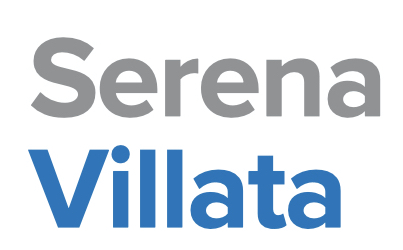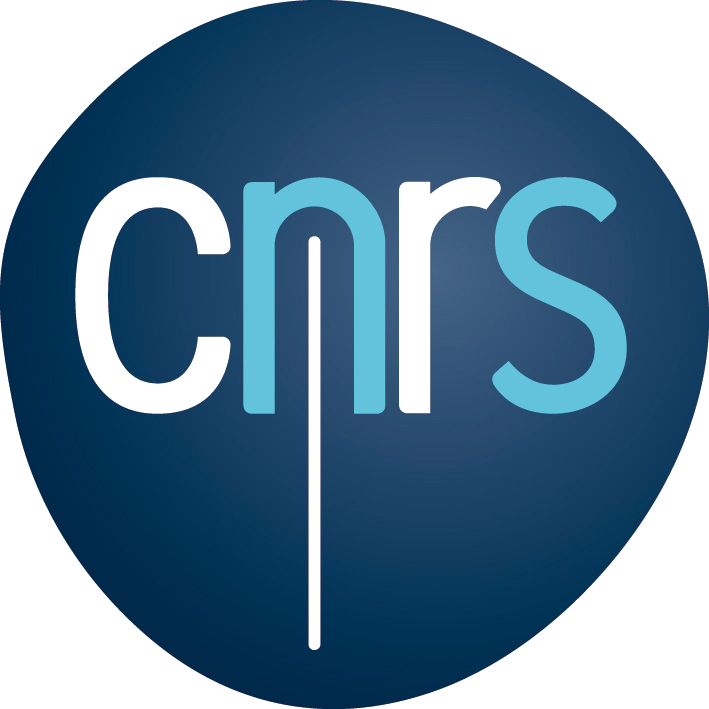




Senior researcher (Directrice de recherche) at CNRS
Chair in Artificial Intelligence
Deputy Scientific Director of the Institute 3IA Côte d’Azur
Head of the Inria-I3S research team MARIANNE
Inria Center of Université Côte d'Azur
Laboratoire I3S, CNRS, Sophia Antipolis, France
Image by CNRS DR20 - Service Communication
I am a senior researcher (Directrice de recherche) in computer science at the CNRS and I pursue my research at the I3S laboratory. Since February 2025, I am the head of the new joint Inria-I3S MARIANNE team, focusing on natural language argumentation.
My research area is Artificial Intelligence (AI), and my current work focuses on computational argumentation considering both reasoning on computational models of argument and mining natural arguments from text (argument mining). I am particularly interested in multidisciplinary applications of argumentation to the legal domain, to medical texts, to political debates and to social networks.
In November 2021, I was awarded with the Prix Inria – Académie des sciences jeunes chercheurs et
jeunes chercheuses (Académie des sciences award website).
Since July 2019, I have been awarded with a Chair in Artificial Intelligence at the Interdisciplinary Institute for Artificial Intelligence 3IA Côte d’Azur on “Artificial Argumentation for Humans”. Since January 2021, I am the Deputy Scientific Director of the 3IA Côte d'Azur Institute.
I am nominated member of the French Council for Artificial Intelligence and Digital Technology and of the French Advisory Committee on Digital Ethics, since September 2025. From December 2019 to December 2024, I have been a member of the National Pilot Committee for Digital Ethics (CNPEN), and from October 2020 to June 2025 I have been a member of the Scientific and Ethical Committee of the Cancer Data Platform of the Institut National du Cancer.
Since January 2025, I am Vice-President of the the Steering Committee of COMMA (Computational Models of Arguments). I am part of the Steering Committee of ECA (European Conference on Argumentation). I have been a member of the IAAIL executive committee (2021-2025). .
Formal argumentation frameworks to reason over inconsistent and incomplete information (bipolar argumentation, trust, preferences, meta-argumentation).
Mining for argumentative structures in natural language text (argumentative components classification, relation predictions).
Automatic quality assessment of argumentative structures and argument generation (argument-based explanations, counter-arguments).
Mining and reasoning on legal texts (fomalisation of moral dialogues, legal ontology population, legal NERC, legal ontologies).
Identifying and classifying harmful and abusive textual messages posted on online social networks (inglish, french, italian, german).
Study of the correlations among argumentative moves in debates, metal statuses (engagement, workload), and emotions.
The aim of the ANTIDOTE project was to explain machine learning predictions in medicine through argument-based explanations in natural language.
Role: project co-coordinator
CHIST-ERA ANTIDOTE website
Project website
Started in September 2020, the aim of the project is to use NLP to detect hate messages on social networks and generate counter-arguments to oppose this content.
Role: project co-coordinator
Project website

Started in January 2022, the aim of the ATTENTION project is to define new algorithms to detect online disinformation and to counter it through arguments to develop the critical thinking of the user.
Role: project coordinator
Project website under construction
The goal this chair is to design and create argumentation-enhanced intelligent machines. These machines require the use of argumentation technologies to mine, analyse, summarize, and generate argumentation structures.
Role: project coordinator
Project website
This project, funded by UCA JEDI Labex (Université Côte d’Azur), aimed at leveraging medical prognosis and decision making in the clinical domain with big data analysis techniques, NaturalLanguage Processing and Machine Learning.
Role: participant
Project website
European network for Argumentation and Public PoLicY analysis
Role: WG3 vice-leader
Project website
The aim of the project was to create an international and inter-sectorial network to define a formal framework and to develop tools for MIning and REasoning with Legal texts.
Role: WG4 leader
Project website
This DGA project aims at automatically detecting fake news and limit their diffusion through counter-argumentation.
Role: project leader for Wimmics
Project website
The purpose of CREEP is to provide a set of tools to support the detection and prevention ofpsychological/behavioral problems of cyberbullying teenage victims.
Role: participant
Project website
The pre-prints of my publications are available on my HAL profile: serena-villata
Google scholar profile (h-index 46)
My DBLP page
ACTA is a tool developed to support the decision making process in evidence-based medicine by automatically analysing clinical trials for their argumentative components and PICO elements.
WEBSITE
DispuTOOL is a tool for mining and exploring arguments in the US Presidential Election Debates from 1960 to 2020.
WEBSITE
Licentia is a suite of services to support you in looking for a suitable license for your data. This tool has been made in collaboration with the University of Cordoba (Argentina).
WEBSITE
Deborah Dore.Université Côte d’Azur, France. 2024-2027. Mining Arguments Over Time.
Role: director. Co-director: Elena Cabrio (UCA).
3IA Chair.
Cyprien Michel-Deletie.Université Côte d’Azur, France. 2024-2027. Automatic Evaluation of Consistency and Reliability of Information Sources : Toward Deeper Understanding of Discourse with Language Models and Logical Analysis.
Role: director. Co-director: Elena Cabrio (UCA).
ENS Lyon.
Ekaterina Sviridova.Université Côte d’Azur, France. 2023-2026. Unveiling implicit inferences for advanced argument mining.
Role: co-director. Director: Elena Cabrio (UCA).
EUR DS4H.
Xiaoou Wang.Université Côte d’Azur, France. 2022-2025. Natural Language Counter-argumentation Against Online Disinformation.
Role: director. Co-director: Elena Cabrio (UCA).
ANR ATTENTION.
Greta Damo.Université Côte d’Azur, France. 2023-2026. Argument-based counter narratives generation to fight online hate speech.
Role: co-director. Director: Elena Cabrio (UCA).
3IA Chair.
Santiago Marro. Université Côte d'Azur, France. 2020-2023 Argument-based Explanatory Dialogues for Medicine
Role: director. Co-director: Elena Cabrio (UCA). 3IA Chair.
Benjamin Ocampo.Université Côte d’Azur, France. 2022-2025. Unmasking implicit and subtle hate speech: NLP approaches for detecting and countering online harm
Role: co-director. Director: Elena Cabrio (UCA).
3IA Chair. Benjamin is currently postdoc at the University of Amsterdam (ERCIM).
Vorakit Vorakitaphan. Université Côte d'Azur, France. 2018-2020. Empowering Web Search Engines with Argumentation and Emotions
Role: director. Co-supervisor: Elena Cabrio (UCA). ANSWER.
PhD defense: December 15th, 2021.
Vorakit is now a data scientist at IBM Paris.
Mina Ayse Ilhan. Université Côte d'Azur, France. 2019-2022 Algorithms disserving justice.
Role: co-director. Director: Marina Teller (UCA). EUR DS4H.
Shohreh Haddadan. University of Luxembourg. 2018-2021 Argument Mining on Political Debates
Role: co-director. Director: Leon van der Torre (Univ. Luxembourg).
PhD defense: April 4th, 2022.
Shohreh is now Data Scientist at Zortify (Luxembourg).
Pierpaolo Goffredo. Université Côte d’Azur, France. 2021-2024. Counter-argumentation to fight fallacious arguments in political debates
Role: director. Co-director: Elena Cabrio (UCA).
3IA Chair.
Amel Ben Othmane. Université Côte d'Azur, France. 2013-2017. CARS - A multi-agent framework to support the decision making in uncertain spatio-temporal real-world applications
Role: co-supervisor. Director: Nhan Le Than (UCA).
PhD defense: October 12th, 2017. Amel is now working at the IBM Research Center in Sophia Antipolis.
Benjamin Molinet. Université Côte d’Azur, France. 2021-2024. Argument-based Explanatory Dialogues for Medicine
Role: co-director. Director: Elena Cabrio (UCA).
ANTIDOTE.
Javed Ahmed. Joint International Doctoral (Ph.D.) Degree in Law, Science and Technology (LAST-JD). 2013-2017 Contextual integrity and tie strength in online social networks: social theory, user study, ontology, and validation.
Role: co-supervisor. Director: Leon van der Torre (Univ. Lux)
PhD defense: September 29th, 2017. Javed is now post-doc at the Norwegian University of Science and Technology.
Luca Baccino. Université Côte d’Azur, France.
2021-2025. The economics of fake news: a theoretical extension to the
economics of digital platforms
Role: co-director. Director: Dominique Torre (UCA, Faculty of Economics).
GREDEG.
Tobias Mayer. Université Côte d'Azur, France. 2017-2020 Argument Mining on Clinical Trials
Role: director. Co-supervisor: Elena Cabrio (UCA).
PhD defense: December 17th, 2020.
Tobias is now a post-doc at Darmstadt University (Germany).
Léonie Blaszyk. Université Côte d’Azur, France.
2021-2025. Le droit à l’épreuve de la notion de fake news
Role:
co-director. Director: C. Lasneque-Roth (UCA, Faculty of Law).
GREDEG.
created with
Website Builder Software .